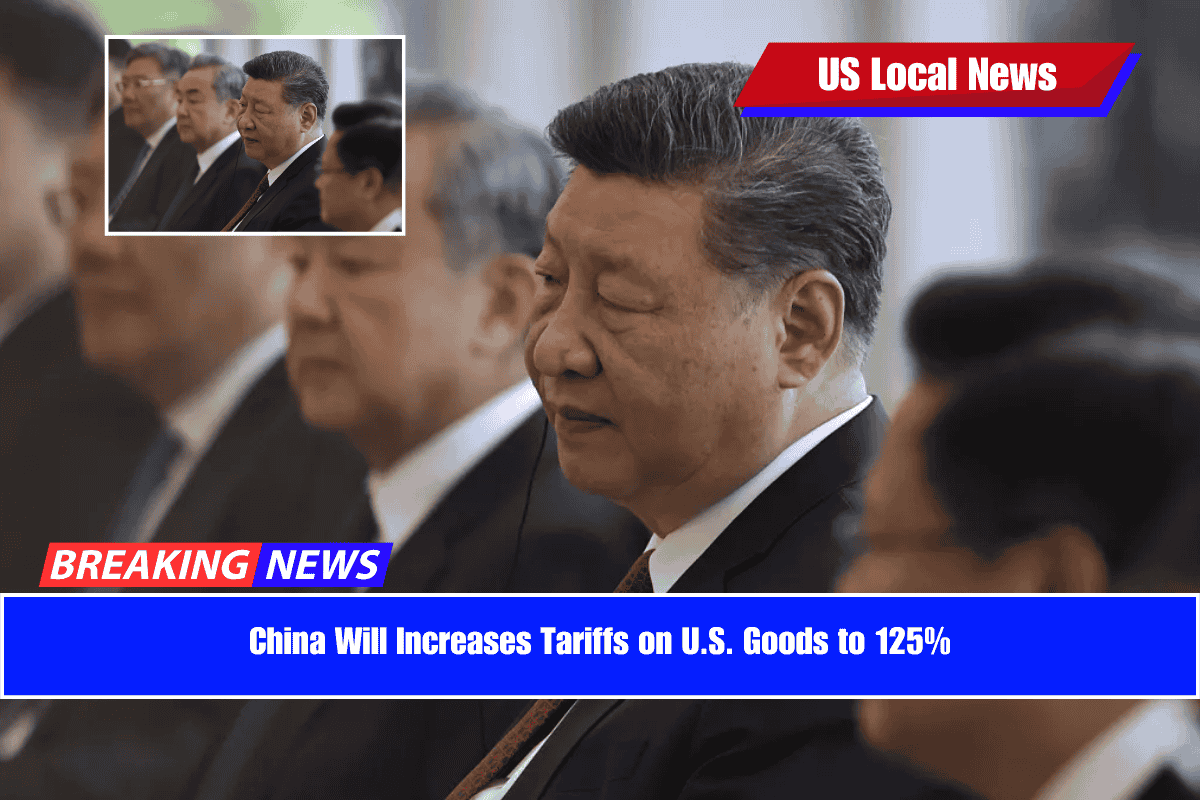In a significant move that escalates the ongoing trade tensions, China announced on Friday that it would raise tariffs on U.S. goods from 84% to 125%. The decision comes as part of the continuing trade war between the two economic giants, with the higher tariffs set to take effect the following day.
China’s Response to U.S. Tariffs
China’s Finance Ministry issued a statement accusing the U.S. of violating international trade rules by imposing excessively high tariffs. The statement described the U.S. tariffs as “arbitrary” and criticized them for disregarding the global economic order established post-World War II.
China also declared that it would no longer respond to future tariff hikes, warning that if the U.S. continued to raise tariffs, it would become a “joke” in the history of the world economy.
China’s statement further emphasized that, with the tariffs already in place, U.S. goods were no longer accepted in Chinese markets. In the face of potential further tariff increases, China vowed to “resolutely counterattack” and continue to defend its economic interests.
Impact on U.S. Tariffs
President Trump’s total tariffs on China now stand at 145%, including various additional levies. These tariffs are a part of the broader trade measures President Trump has put in place against China. Earlier this week, Trump did not include a 20% tariff related to China’s role in fentanyl production when announcing further tariff hikes on Chinese goods.
In response to these escalating tariffs, China has also filed another complaint with the World Trade Organization (WTO), accusing the U.S. of unfair trade practices.
Stock Market Reactions
Following China’s announcement, European stock indexes experienced a sharp drop after initially showing small gains. Market analysts have raised alarms about the heightened risk of a recession, noting that the trade war between the U.S. and China is starting to have a more significant economic impact.
Adam Hetts, global head of multi-asset at Janus Henderson, stated that the risk of a recession was now “much, much higher” than just a couple of weeks ago.
Trump’s Strategy and Potential Negotiations
In a related development, President Trump froze “reciprocal tariffs” on numerous countries for 90 days, while increasing tariffs on Chinese imports. This move followed a sharp decline in U.S. and global stock markets, signaling investor concerns about the direction of American trade policy.
Some analysts suggest that Trump’s decision to suspend most of the tariffs could indicate a willingness to negotiate, but finding common ground with China remains complicated due to the ongoing trade war.
Analysts from Capital Economics pointed out that China’s continued retaliation suggests the leadership in Beijing may not be eager to settle the dispute.
While they believe China might accept a rollback of tariffs in exchange for non-binding gestures, they remain skeptical that substantial negotiations will lead to a meaningful deal. This reflects the deep mutual distrust between the two nations, as well as broader geopolitical factors that may continue to drive them further apart.











Leave a Reply